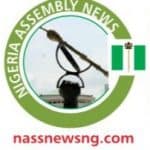National Assembly to coordinate legislature across Nigeria
The National Assembly in Abuja has put all needed in place to monitor, evaluate and coordinate the performance and activities of the state assemblies in the country. The department of legislature matters was created a year ago and has been given the mandate to liaise with the state assembly speakers to actualize the functions of the parliament across the country.
The National Assembly of the Federal Republic of Nigeria is a bicameral legislature established under section 4 of the Nigerian Constitution. It consists of a Senate with 109 members and a 360-member House of Representatives The body, modeled after the federal Congress of the United States, is supposed to guarantee equal representation with 3 Senators to each 36 states irrespective of size in the Senate plus 1 senator representing the FCT, Abuja and
Abuja, in the FCT, Abuja.
The Assembly has broad oversight functions and is empowered to establish committees of its members to scrutinize bills and the conduct of government officials. Since the restoration of democratic rule in 1999, the Assembly has been said to be a “learning process” that has witnessed the election and removal of several Presidents of the Senate, allegations of corruption, slow passage of private member’s bills and the creation of ineffective committees to satisfy numerous interests.
More than two-thirds majority control of the Assembly by the then ruling People’s Democratic Party (PDP), the PDP government led by Dr Goodluck Ebele Jonathan and the Assembly have been known more for their disagreements than for their cooperation. The Former President Jonathan has been accused of being slow to implement policy. Many bills, some from as long ago as 2007, are still awaiting the President’s assent. While the Assembly has made strong and often popular efforts to assert its authority and independence against the executive, it is still viewed generally in a negative light by the media and many of the Nigerian people. The Assembly sits for a period of at most four years, after which time the President is required to dissolve it and call a new Assembly into session.
READ ALSO: NASS: 10yrs after, multi-billion naira presiding officers’ residences uncompleted
The Senate has the unique power to impeach judges and other high officials of the executive including the Federal Auditor-General and the members of the electoral and revenue commissions. This power is, however, subject to prior request by the President. The Senate also confirms the President’s nomination of senior diplomats, members of the federal cabinet , federal judicial appointments and independent federal commissions.
Prior to the passage of any bill, it must be agreed to by both the House and the Senate, and receive the President’s assent. Should the President delay or refuse assent ( veto) the bill, the Assembly may pass the law by two-thirds of both chambers and overrule the veto and the President’s consent will not be required. The present Assembly has not hidden its preparedness to overrule the executive where they disagree.
The department of legislature matters is one of the the three departments created by the clerk of national assembly Mr Mohammed Ataba Sani Omolori to overlook the running of the parliaments across the Nation.
The Director in charge of the department of legislature matters Mr Abiodun Oloyede assure Nass newspaper of prompt briefing on day to day activities of the department when the time comes.
